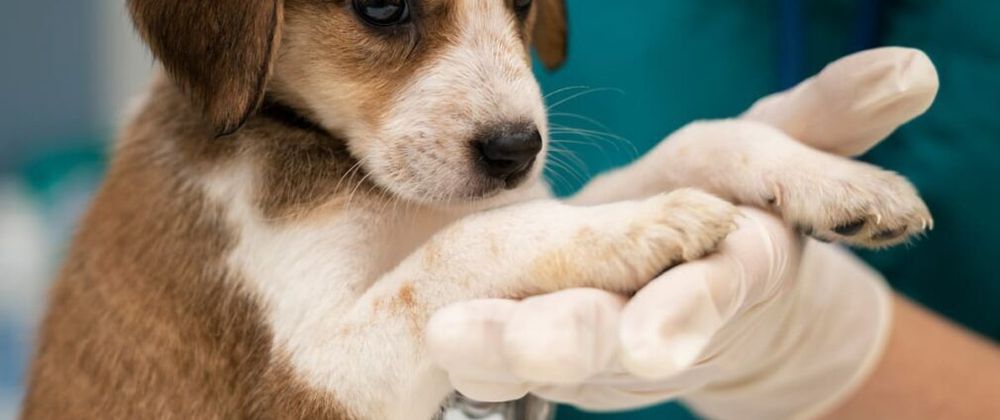Good nutrition is the foundation of a long, healthy life for your pet. While regular pet wellness exams and routine checkups are essential, a well-balanced diet plays a crucial role in pet preventive care. The right nutrition supports your pet's immune system, maintains a healthy weight, and helps prevent chronic diseases. Let’s explore how diet contributes to overall pet health and what you can do to ensure your furry friend receives the best nutrition possible.
The Role of Nutrition in Pet Preventive Care
Nutrition is a key component of pet preventive care because it directly impacts your pet's energy levels, organ function, and overall well-being. Just as humans need balanced diets to stay healthy, pets require essential nutrients to thrive. A poor diet can lead to obesity, diabetes, heart disease, and other preventable conditions.
- Supports a Strong Immune System A diet rich in essential vitamins and minerals helps build a strong immune system, reducing the risk of infections and illnesses. Foods containing antioxidants, such as vitamins A, C, and E, help protect cells from damage and promote overall health. Omega-3 fatty acids, found in fish and flaxseed, contribute to brain function and reduce inflammation.
- Maintains Healthy Weight and Prevents Obesity Obesity is a growing concern for pets and can lead to severe health problems, including diabetes, arthritis, and heart disease. Feeding the right portion sizes and choosing high-quality, nutrient-dense food can prevent unnecessary weight gain. Discussing your pet's weight during pet wellness exams can help ensure they remain within a healthy range.
- Promotes Healthy Digestion Proper digestion is essential for nutrient absorption. A diet containing high-quality proteins, fiber, and probiotics helps maintain gut health and prevents digestive issues such as constipation or diarrhea. Avoiding excessive fillers and artificial ingredients ensures your pet receives optimal nutrition without unnecessary additives.
- Supports Joint and Bone Health As pets age, they become more prone to joint problems and arthritis. Diets that include glucosamine, chondroitin, and omega-3 fatty acids help maintain joint flexibility and reduce inflammation. Large breed dogs, in particular, benefit from specific diets designed to support bone and joint health.
- Improves Skin and Coat Health A shiny coat and healthy skin are indicators of good nutrition. Essential fatty acids, such as those found in fish oils and flaxseeds, keep your pet's coat smooth and reduce skin irritation. Dry, flaky skin can often be a sign of nutritional deficiencies.
Choosing the Right Diet for Your Pet
The best diet for your pet depends on factors such as age, breed, activity level, and specific health needs. Here are some tips to help you make the right choice:
- Opt for High-Quality Ingredients Look for pet foods that list real meat, fish, or poultry as the first ingredient. Avoid products with excessive fillers like corn, wheat, or soy, which provide little nutritional value.
- Consider Life Stage and Breed-Specific Diets Puppies and kittens require nutrient-dense diets to support rapid growth, while senior pets may need food formulated to support aging joints and organ function. Large breeds often need specialized diets to support their unique nutritional needs.
- Balance Protein, Fats, and Carbohydrates Proteins build strong muscles, fats provide energy and support cell function, and carbohydrates supply fiber for digestion. A well-balanced diet ensures all these nutrients work together for overall health.
- Monitor Portion Sizes Overfeeding is a common issue that leads to obesity and related health problems. Follow feeding guidelines provided on pet food packaging and consult with your veterinarian to determine the ideal portion size.
- Incorporate Fresh and Natural Foods Adding fresh vegetables, lean meats, and fruits in moderation can provide additional vitamins and minerals. However, be aware of toxic foods such as onions, grapes, and chocolate, which should never be fed to pets.
The Importance of Regular Pet Wellness Exams
While proper nutrition is essential, regular pet wellness exams are equally important in maintaining overall health. These checkups help detect early signs of illness, assess weight and body condition, and ensure your pet is receiving the right nutrients. Your veterinarian can provide tailored dietary recommendations based on your pet's specific needs.
How to Transition to a New Diet
If you’re considering changing your pet’s diet, follow these steps to ensure a smooth transition:
Gradually Introduce New Food - Mix small amounts of the new food with the current diet, increasing the portion over 7-10 days.
Monitor Digestive Changes - Watch for signs of stomach upset, such as vomiting or diarrhea, and adjust the transition speed accordingly.
Consult Your Veterinarian - Before making significant dietary changes, speak with your vet to ensure the new diet meets your pet's nutritional needs.
Conclusion: Make Nutrition a Priority
A well-balanced diet is one of the most effective ways to support your pet’s long-term health. Along with routine pet wellness exams, proper nutrition plays a crucial role in pet preventive care, ensuring your furry companion stays healthy and happy. By making informed dietary choices and monitoring your pet’s health, you can help prevent common illnesses and improve their quality of life.
Looking for expert advice on pet nutrition? Schedule a wellness exam with your veterinarian today and give your pet the best foundation for a healthy future!



Top comments (0)